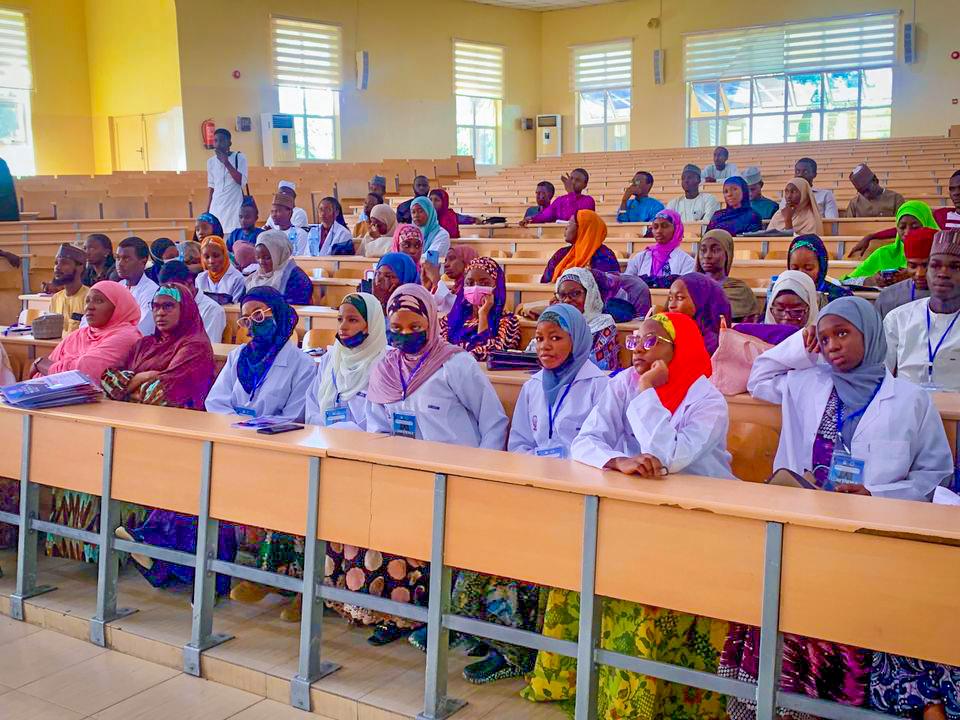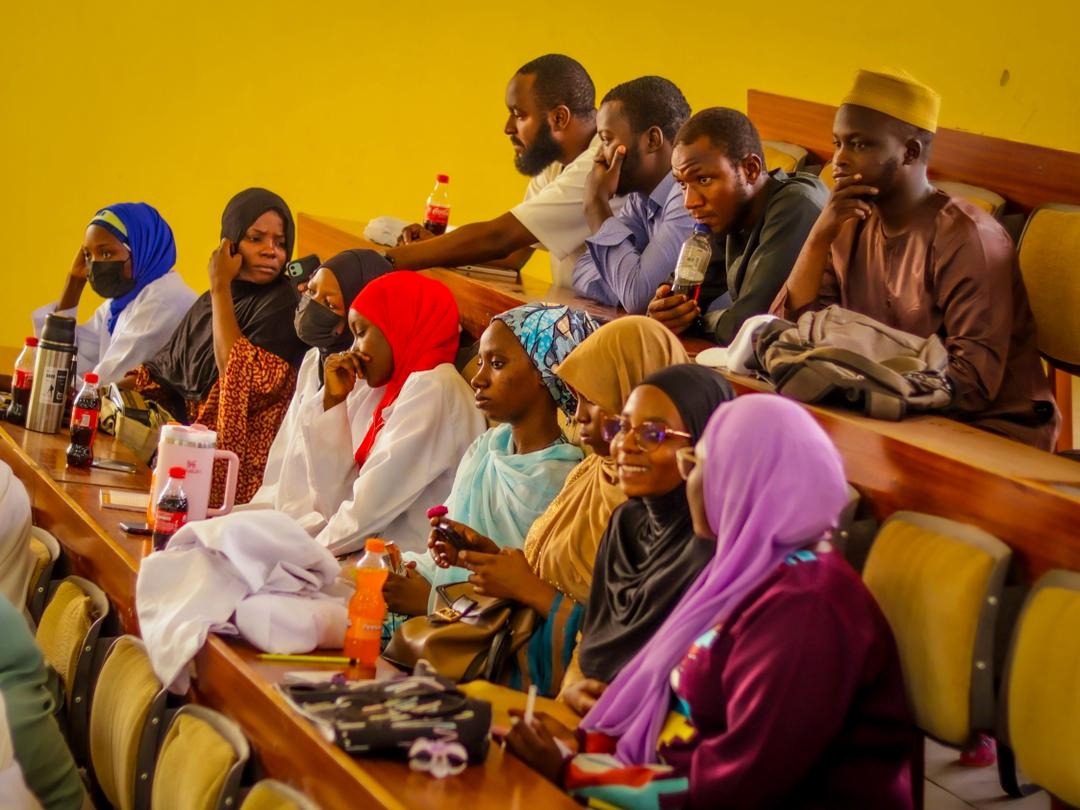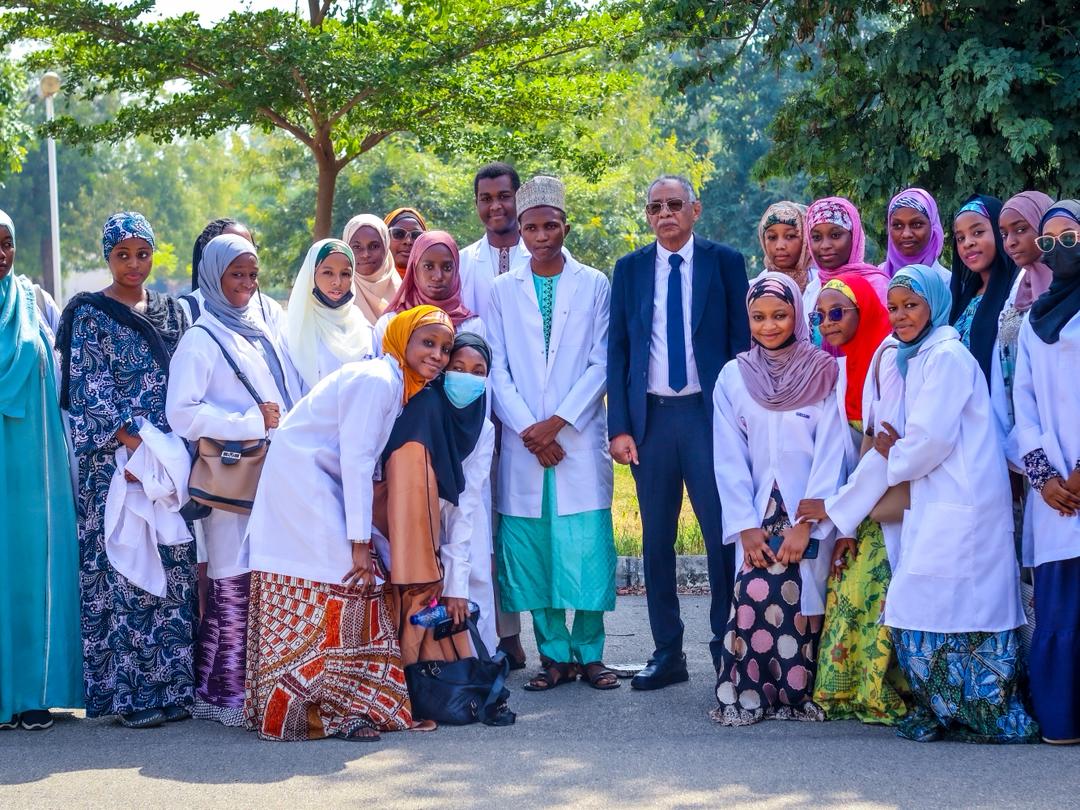 Health
Health
Why It Matters
1. Health awareness gap – Many regions of Northern Nigeria still struggle with low awareness of health issues (maternal health, child health, communicable diseases, non-communicable diseases). A programme called “Lafiya Jari” was specifically designed to address maternal and neonatal health in Bauchi State.
2. Language and culture relevance – Using Hausa language and culturally appropriate formats (radio magazines, discussions in local dialect) helps reach communities that may otherwise be missed by standard national health-campaigns.
3. Linking health to economic empowerment – The reference to a “Lafiya Jari Empowerment Programme” in Kano suggests that the initiative extends beyond pure health messaging—it connects health (wellbeing) to livelihood and economic opportunity. Good health enables productivity; conversely, economic empowerment supports better health outcomes.
4. Regional development lens – In states like Kano, where youth unemployment is high and health indicators lag behind national averages, a combined health + empowerment initiative is a strategic approach: you address health, you empower youth, you build resilient communities.
---
Core Components & How It Works
Although public-documentation on LJI (as a named initiative) is somewhat limited, we can infer its core components from the pieces of evidence and typical development-programme structure:
Media / Communication: For instance, the radio programme “Lafiya Jari – 30-minute magazine style” in Bauchi featured health experts and discussion segments on maternal and child health.
Community Outreach / Training: Likely includes community mobilisation, health-education sessions (on antenatal care, neonatal safety, hygiene, disease prevention) and empowering local actors (community health workers, women groups).
Empowerment / Livelihood Link: As seen in Kano’s government mention, part of LJI’s approach includes economic opportunities: e.g., youth/entrepreneur empowerment, linking health with economic resilience.
Collaboration with Government & Agencies: Works in concert with state ministries of health, NGOs/donors (e.g., USAID), media houses.
Focus on Preventive Health & Equity: Emphasis on early detection, prevention, access to services in underserved communities, and using local languages for broader reach.
---
Achievements & Highlights
The radio magazine programme referenced in Bauchi successfully aired in Hausa, featuring experts and accessible content for local listeners. This illustrates how LJI (or programmes under the name) succeed in bridging health-communication gaps.
In Kano State, the government publicly recognised the “Lafiya Jari Empowerment Programme” as part of its development strategy, underscoring the initiative’s relevance beyond health alone.
The use of Hausa language ensures inclusion of populations that might otherwise be marginalised in national health campaigns conducted primarily in English or other languages.
---
Areas of Focus & Thematic Priority
Some of the key thematic areas that LJI likely addresses are:
1. Maternal & Child Health – Antenatal, neonatal care, birthing practices, child immunisation, nutrition.
2. Communicable Diseases – Health-education about diseases prevalent in Northern Nigeria (e.g., malaria, hepatitis, tuberculosis). For example, the radio show discussed Hepatitis B in one episode.
3. Health-Lifestyle & Preventive Care – Hygiene, sanitation, nutrition, non-communicable disease prevention.
4. Economic Empowerment Linked to Health – Training or supporting youth/entrepreneurs so that improved health leads to better livelihoods and vice versa.
5. Community Engagement & Local Language Communication – Ensuring health messages are culturally appropriate, delivered in Hausa, and accessible.
6. Capacity Building of Local Actors – Building knowledge of community health workers, volunteers, local organisations.
---
Why LJI is Relevant to You
Since you (Umar bin Isa Africa) have interests in content-creation, motivational work, outreach, community service and skills building, LJI presents interesting alignment:
Content & Communication: The initiative emphasises health education using local languages & media formats—this aligns with your interest in creating motivational/educational content (posts, voice-over) for community benefit.
Community Service: Your desire to engage in service, outreach, motivation fits well with an initiative like LJI which is oriented toward improving health and wellbeing at community level.
Skill Growth & Cross-Disciplinary Fit: If you are developing web-design, content creation and digital outreach skills, there’s potential to apply those within programmes like LJI—to build campaigns, digital assets, social-media posts, health-education materials.
Regional Proximity: Being in Kano, you are well-positioned to participate in or support such initiatives locally, especially as Kano State government recognises LJI-type programmes.
Empowerment Focus: Since LJI touches on economic empowerment via health, it dovetails with your multi-dimensional goals (skills, content, outreach, income-generation) rather than being purely academic.
---
Challenges & Considerations
Documentation & Clarity: There may be less publicly available detailed documentation about the initiative’s structure, funding, metrics and long-term impact. Investigating further is advisable.
Sustainability & Scale: Many health-education programmes struggle with sustainability beyond donor funding or pilot phases. Ensuring continuity (staffing, financing) is key.
Measuring Impact: Knowing how much the initiative changes health outcomes, behaviour or empowerment is crucial—but may not always be easy to gauge.
Integration with Health Systems: For maximum effect, LJI must be integrated with government health services, referral systems and policy frameworks. If not well integrated, messages may not lead to action.
Digital & Resource Constraints: While digital content and media are important, rural communities may face internet access, electricity or media reach limitations. Tailoring to local resource context matters.
---
Future Prospects & Strategic Value
Digital Expansion: With your interest in web and content, you could help amplify LJI’s impact via digital platforms (social media campaigns, informational websites, audio/voice campaigns in Hausa) to reach younger audiences.
Partnerships: LJI could benefit from partnerships with universities (for research), content-creators (for podcasts/posts), local NGOs and youth groups—creating opportunities for you and your network.
Evidence-based Scaling: If LJI generates robust results (in maternal health, empowerment, youth livelihood) it could serve as a model for similar regions.
Social Impact + Income Generation: Combining health education, content-creation and empowerment gives room for meaningful work that also can generate income (through grants, sponsorships, media‐production) aligning with your goal of service + sustainability.
---
Summary
The Lafiya Jari Ce Initiative is not just another health campaign—it represents a culturally anchored, community-oriented approach to health, wellbeing and empowerment in Northern Nigeria. It brings together language (Hausa), media, health education, community empowerment and economic opportunity.
For someone like you, who is learning skills (web development, content creation), committed to motivational outreach, and rooted in the region, LJI offers a compelling platform: a way to apply your growing skills to real-world impact, to create content that matters, to serve your community, and to build a career aligned with both social good and skill development.






